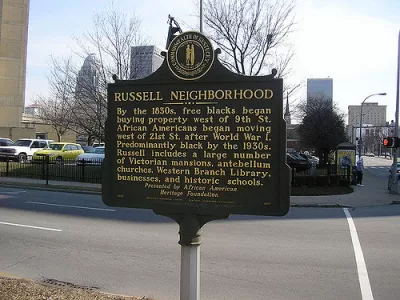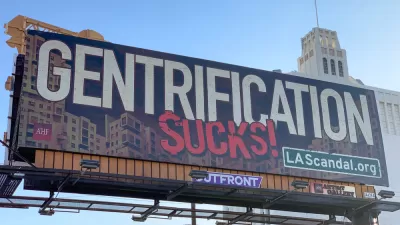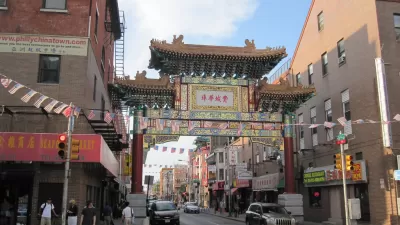A prominently Black and low-income neighborhood in Louisville could gain a new tool for spurring local development—the law is intended also to control the effects of gentrification.

Morgan Watkins reports: "A bipartisan group of [Kentucky] lawmakers wants to boost long-term, community-driven economic development in west Louisville — a region hurt by decades' worth of disinvestment — by establishing a tax increment financing district that ensures local tax dollars are reinvested in its neighborhoods."
"A TIF district allows for current development to be financed with future tax revenues from the increases in property values, as well as in sales taxes and other kinds of taxation, that are anticipated as an area's economic revitalization unfolds," explains Watkins.
The state law proposes a 30-year TIF district for "the part of the city that stretches west of Ninth Street and north of Algonquin Parkway," according to Watkins.
According to the article, the part of the city targeted for the TIF district is home to many of the city's Black residents, many of which are low-income. The legislators hope the TIF would address problems rooted in systemic racism awhile also including safeguards against gentrification. To ensure that property taxes stay reasonable for existing residents, the legislation would cap property tax increases based on values assessed this year. The legislation also includes provisions to encourage community involvement in vetting potential development projects.
FULL STORY: Bipartisan legislative plan would create economic development district in west Louisville

Alabama: Trump Terminates Settlements for Black Communities Harmed By Raw Sewage
Trump deemed the landmark civil rights agreement “illegal DEI and environmental justice policy.”

Planetizen Federal Action Tracker
A weekly monitor of how Trump’s orders and actions are impacting planners and planning in America.

Why Should We Subsidize Public Transportation?
Many public transit agencies face financial stress due to rising costs, declining fare revenue, and declining subsidies. Transit advocates must provide a strong business case for increasing public transit funding.

Understanding Road Diets
An explainer from Momentum highlights the advantages of reducing vehicle lanes in favor of more bike, transit, and pedestrian infrastructure.

New California Law Regulates Warehouse Pollution
A new law tightens building and emissions regulations for large distribution warehouses to mitigate air pollution and traffic in surrounding communities.

Phoenix Announces Opening Date for Light Rail Extension
The South Central extension will connect South Phoenix to downtown and other major hubs starting on June 7.
Urban Design for Planners 1: Software Tools
This six-course series explores essential urban design concepts using open source software and equips planners with the tools they need to participate fully in the urban design process.
Planning for Universal Design
Learn the tools for implementing Universal Design in planning regulations.
Caltrans
Smith Gee Studio
Institute for Housing and Urban Development Studies (IHS)
City of Grandview
Harvard GSD Executive Education
Toledo-Lucas County Plan Commissions
Salt Lake City
NYU Wagner Graduate School of Public Service





























